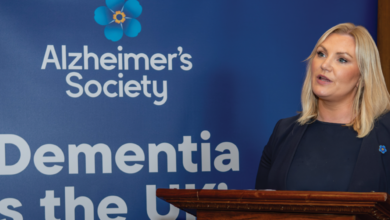Vision for future of nursing and midwifery

The Department of Health’s Shaping the Future of Nursing and Midwifery in Northern Ireland: A Strategic Vision for 2023–2028, which aims to establish a healthcare system where nurses and midwives operate “to their full potential” has no budget allocated and it is unclear how the proposed reforms will be implemented.
The Department of Health states that its mission is to support and enable nurses and midwives in providing safe, effective, and compassionate care. Central to this mission is a “healthful culture” defined by collaborative decision-making, innovative leadership, and continuous improvement. This environment creates a workplace fostering well-being and professional respect, going beyond healthcare delivery to include meaningful, supportive interactions among healthcare staff, patients, and families.
However, while the goals for the future cultural workspace for healthcare professionals have been outlined, the means through which this will take place is less clear, as there is no budget allocation for the strategy and there has been no public comment by Minister of Health Mike Nesbitt MLA.
Three strategic themes structure the vision: workforce stabilisation, a population health approach, and role transformation within multidisciplinary teams. Each theme represents a pillar aimed at creating a resilient nursing and midwifery workforce capable of meeting the needs of Northern Ireland’s population.
1. Stabilising the workforce: Workforce stabilisation is essential to achieving safe and effective care. Addressing workforce shortages, optimising workload management, and providing structured career pathways are fundamental to this priority. Creating stable and supportive working conditions prevents burnout and encourages retention, especially given growing healthcare demands. This theme prioritises workload planning and staff well-being, both critical for enabling providers to deliver consistent, high-quality care.
2. Implementing a population health approach: Adopting a population health approach allows the Department to integrate public health, prevention, and early intervention into nursing and midwifery practice. This approach aligns with global practices prioritising the social determinants of health, promoting healthy behaviours, and reducing disparities. By focusing on public health and prevention, Northern Ireland’s workforce can proactively improve community health and reduce the demand on acute services over time.
3. Transforming roles within multidisciplinary teams: Recognising the evolving nature of healthcare, the vision seeks to empower nurses and midwives by expanding their roles within multidisciplinary teams. This approach creates a healthcare environment that values each profession’s unique contributions. By broadening roles, the Department enables these professionals to become essential members of patient care teams, fostering comprehensive, patient-focused care. This also offers significant opportunities for career development and job satisfaction.
Priority actions
To bring the vision’s themes to life, the Department outlines four immediate priority actions:
1. Workforce and workload planning
Effective workforce and workload management are crucial to meet current demands. A stable, well-supported workforce enables care continuity and allows providers to give the time and attention required for person-centred care. Addressing workload pressures and improving resource allocation supports sustainable, high-quality care delivery.
2. Education and training
Continuous education and training equip nursing and midwifery professionals with the skills necessary for changing healthcare demands. Investment in high-quality education ensures professionals deliver safe, evidence-based care. Additionally, training that adapts to new healthcare needs enables providers to expand their competencies, preparing them for a multidisciplinary care model.
3. Career pathways
Clear career pathways attract and retain skilled professionals. By providing structured opportunities for advancement, the Department aims to foster a resilient workforce with a long-term commitment to the profession. Defined pathways allow providers to develop specialisations, pursue leadership roles, and broaden skills, contributing to personal and professional fulfilment.
4. Quality assurance framework
A quality assurance framework ensures care standards remain consistently high, fostering public trust in the healthcare system. Through structured quality control, this framework enables continuous improvement to meet evidence-based standards and community needs. Emphasising cultural respect, safety, and compassionate care, a quality assurance framework ensures equity and accountability in healthcare delivery.
A ‘healthful culture’
At the core of this strategic plan is establishing a ‘healthful culture’ that promotes shared decision-making, transformational leadership, and innovation. This culture fosters empowerment and value for both staff and patients. Transformational leadership, combined with a supportive, inclusive work environment, encourages providers to take initiative, share insights, and work collaboratively.
A ‘healthful culture’ is cited by the Department as “essential for addressing psychological safety, morale, and retention”. By creating an environment where staff feel secure and appreciated, the Department states that it aims to prevent burnout and support mental wellbeing. This approach reflects a broader understanding of healthcare delivery that values patients and those who care for them.
The 2023–2028 vision aims to foster a culture by stabilising the workforce, embracing a population health approach, and enhancing roles within multidisciplinary teams, with the broad vision of ensuring healthcare providers are well-prepared, supported, and valued.
While the Minister has yet to comment on the strategy, Chief Nursing Officer, Maria McIlgorm, at the time of publication, said: “It is important that we will continue to work together to provide the resources and conditions to ensure that everyone involved in providing nursing and midwifery care can confidently and safely provide high quality evidence-based care.”





